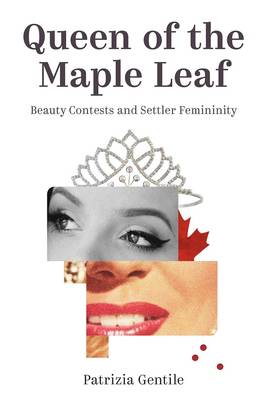
- Retrait gratuit dans votre magasin Club
- 7.000.000 titres dans notre catalogue
- Payer en toute sécurité
- Toujours un magasin près de chez vous
- Retrait gratuit dans votre magasin Club
- 7.000.0000 titres dans notre catalogue
- Payer en toute sécurité
- Toujours un magasin près de chez vous
Description
Beauty pageants in early twentieth-century Canada were more than just frivolous spectacles. Queen of the Maple Leaf deftly uncovers how colonial power operated within the pageant circuit. In this astute critical investigation, Patrizia Gentile examines the interplay between local or community-based pageants and more prestigious provincial or national ones. Contests such as Miss War Worker, Miss Black Ontario, and Miss Civil Service often functioned as stepping stones to competitions such as Miss Canada. At all levels, pageants exemplified codes of femininity, class, sexuality, and race that shaped the narratives of the settler nation. A union-organized pageant such as Queen of the Dressmakers, for example, might uplift working-class women but immigrant women need not apply. Not unlike sports leagues linked from minor to major leagues, pageants from local to national levels formed a network that entrenched white settler nationalism in the context of the beauty industrial complex.
Queen of the Maple Leaf demonstrates that these contests were designed to connect female bodies to white, middle-class, respectable femininity and wholesomeness, and that their longevity lies squarely in their capacity to reassert the white heteropatriarchy at the heart of settler societies.
Spécifications
Parties prenantes
- Auteur(s) :
- Editeur:
Contenu
- Nombre de pages :
- 292
- Langue:
- Anglais
- Collection :
Caractéristiques
- EAN:
- 9780774864138
- Date de parution :
- 04-02-22
- Format:
- Livre broché
- Format numérique:
- Trade paperback (VS)
- Dimensions :
- 150 mm x 226 mm
- Poids :
- 476 g

Les avis
Nous publions uniquement les avis qui respectent les conditions requises. Consultez nos conditions pour les avis.






